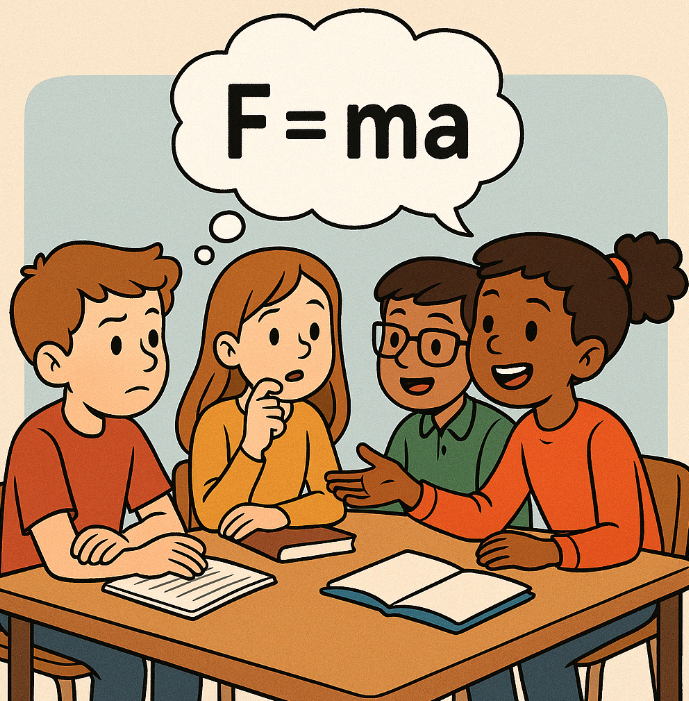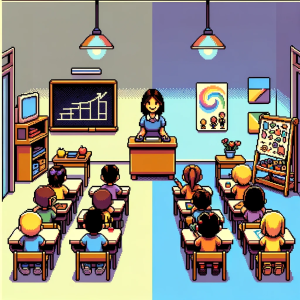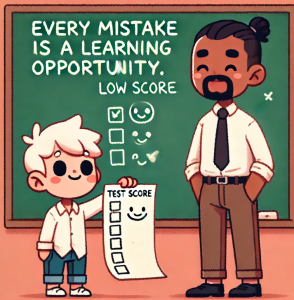
When Clickers Beat Worksheets: The Classroom Strategy That Supercharged Student Learning
The bell rings. A class of 10th graders shuffles in, dreading their next hour of kinematics. Equations about motion, velocity, and acceleration swirl in their minds—if they’re lucky. For others, it’s a haze of confusion. But today, their teacher doesn’t launch into a lecture. Instead, a question flashes on the screen:
“If two cars are side-by-side on a highway, are they going the same speed?”
Students tap answers into clickers. They argue with classmates. They vote again. Then, the teacher leads a short but focused discussion. No worksheets. No memorized steps. Just a fight to understand why.
Three months later, those students didn’t just remember the answer—they understood the concept. Better than their peers in traditionally taught classrooms. Even better than students who got extra testing without this style of teaching.
That’s the power of formative assessment—and a new Swiss study proves it works.
What’s Formative Assessment—And Why Does It Matter?
Formative assessment isn’t about grades or high-stakes tests. It’s a way of teaching where feedback is built into the learning process. Students answer questions, reflect on mistakes, talk it out, and try again. It sounds simple—but it’s a major mindset shift for teachers.
Researchers trained 10 high school physics teachers in a strategy using clicker questions, student self-monitoring tools, and follow-up discussions. The goal? Help students uncover their misconceptions in real time.
And the results were clear:
- Students in formative assessment classrooms dramatically outperformed their peers on conceptual physics questions—both immediately and 3 months later.
- Crucially, they didn’t lose ground on problem-solving skills, even though they spent less time on traditional practice.
This matters for every subject. In science, math, reading—kids often “go through the motions” without truly grasping what they’re doing. This approach slows them down just enough to think. And that’s where deep learning happens.
Why Teen Brains Struggle with Concepts Like Acceleration
Here’s the kicker: physics isn’t hard just because of the math. It’s hard because it defies our instincts.
Children experience motion from toddlerhood—pushing toys, riding bikes, watching cars. They develop ideas about speed and movement long before they learn the scientific definitions. But those early ideas often conflict with real physics.
For example:
- Kids might think “acceleration” means going faster—period. But scientifically, slowing down is also acceleration if it changes velocity.
- Or they believe that two cars side-by-side must be moving at the same speed, forgetting direction matters too.
Teachers face a double challenge: they have to un-teach students’ deeply held (but wrong) beliefs and rebuild a new understanding. That doesn’t happen by showing more formulas. It happens through thoughtful, concept-driven conversation.
Formative assessment gives teachers the tools to have those conversations—and gives students the space to make sense of what they’re learning.
Does This Actually Work for All Kids?
Let’s talk numbers.
In the study, researchers followed 604 students from 29 teachers. Three groups were compared:
- Formative Assessment (FA): Teachers used clickers, feedback tools, and reflective lessons.
- Frequent Testing (FT): Teachers gave the same questions—just without the deeper feedback or student discussion.
- Traditional Teaching (TT): Business as usual.
Here’s what they found:
- FA students outscored everyone on conceptual understanding—immediately after the lessons and 3 months later.
- FT students—who had the same questions but no feedback—didn’t improve over traditional teaching.
- On problem-solving questions, there was no downside. FA students performed just as well, even with less time practicing formulas.
- Bonus: FA students were more likely to integrate formulas with concepts, not just memorize steps.
But What About the Gender Gap?
Like many STEM subjects, physics shows a consistent gender gap—boys tend to outperform girls, especially in later grades. So, did formative assessment help?
Sort of.
- Male students benefited the most from the new approach.
- Girls improved too, and in many cases caught up to boys in traditionally taught classrooms.
- But the overall gender gap persisted, especially in math-heavy problem solving.
The takeaway? Formative assessment isn’t a silver bullet—but it’s a tool that helps more kids engage, reflect, and grow.
What Schools and Parents Can Do Next
This study offers a hopeful message: you don’t need to overhaul the entire curriculum to make learning stick.
A one-day teacher training. A few new routines. A shift from “Did you get it right?” to “What did you think was happening?”
Whether you’re a parent, teacher, or school counselor, here’s how you can bring this approach to life:
- Ask teachers if they use concept questions or clickers in class—not for grading, but for reflection.
- Encourage school leaders to invest in short, high-quality training on formative assessment—not just more testing.
- At home, shift your questions from “What did you get on the test?” to “What confused you today?” or “What helped it finally click?”
Let’s Talk About It
What’s the biggest mental health challenge you see in schools today?
How can schools better support students’ emotional and cognitive development?
What’s one insight from school psychology that’s changed how you teach or parent?
Let’s start a conversation—in the comments, at the next PTA meeting, or over coffee in the teacher’s lounge.
Final Thought
Too often, we measure learning by what kids can recite, not what they truly understand. But when we slow down, ask better questions, and let students talk through their thinking—we build something far more valuable than a good grade.
We build minds that think critically, reflect deeply, and never stop learning. And that’s worth the extra click.
Be the Calm in the Chaos.
Educators, parents, counselors—this is your moment. For just $5/month, This Week in School Psychology delivers clarity, compassion, and science-backed solutions in a noisy, uncertain world. No jargon. No fluff. Just the facts that help you help kids.
Subscribe today—and bring sanity back to school.



